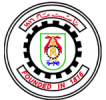Third Year – First Term
GEN 331 Fundamentals of Accounting and Cost Estimation (3+1)
Introduction to Fundamentals of Accounting and Cost Estimation – Interest Types – Capital and Investement Costs and Production Costs –Depreciation – Expenditure – Pofitability Indicators – Optimization – Cash Flow – Project Execution – Function of Stock Market – Management – Balance sheet – Types of Economic Schools – Applications for Mechanical Power Engineering.
GEN 332 Business Management (3+1)
Introduction to Execution and Management of Engineering Projects – Management Schools – Quality and Quantity Management – Characteristics of a Successful Manager – Decision Making and Organization Process – Types of Task Distribution – Conceptions and Criteria of Evaluation – Relative Weighting – Evaluation Nets Utilization – Management of Human Resources – Direct and Indirect Supervision Methods – Development of Work Relations and Resources – Principles and Applications of Operation Research and Other Techniques –Case Studies for Mechanical Power Engineering.
GEN 333 Statistics and Marketing (3+1)
Introduction to Applied Statistics– Reviewing of Methods of Data Presentation and Analysis and the Important Statistical Measures – Probability Distributions and Their Applications (especially in Mechanical Power Engineering) – Sampling Methods – Sample and Population Measures (point estimate) – Tests of Hypothesis and Confidence Limits – Correlation and Regression Analysis – Fundamentals of Marketing – Market Surveying Studies –Economic and Visibility Studies of Projects – Applications and Case Studies in Mechanical Power Engineering.
GEN 334 Applied Psychology (3+1)
Definition of Psychology – Introduction to Applied Psychology – Physiological Bases of Human Behavior – Attention and Perception – Learning Processes – Application of Psychology in Management of Industrial and Engineering Projects (Importance of Management for Engineers, Characteristics of a Successful Manager – Decision Making and Organization – Task Distribution – Conceptions and Criteria of Evaluation – Management of Human Resources – Direct and Indirect Supervision Methods – Development of Work Relations and Resources) – Case Studies for Mechanical Power Engineering.
Third Year – Second Term
MDP 321 Machine Design (2) (3+2)
Design of Power Transmission Elements: Shafts, Couplings, Clutches, Brakes, Belts, Ropes, Chains, and Gears – Design and Selection of Rolling element Bearing – Hydrodynamic and Hydrostatic Bearings – Gear Boxes – Flywheels – Machine Structure – Computer Applications.
MDP 322 Production Engineering (3) (3+2)
Metal Forming: Flow Curve, Slab Method Applied to Forging, Rolling, Extrusion and wire Drawing – Sheet Metal Processes – Fine-Edge Blanking and Piercing, Deep Drawing, Contour-Roll Forming – Machine Tools for Metal Forming – Theory of Metal Cutting, Orthogonal and Oblique Cutting, Chip Formation and its Types, Shear Plane Theories, Ploughing Force, Built-up Edge, Friction, Heat Generated, Tool Wear and Life, Optimum Cutting Speeds, Break-Even Analysis.
MDP 323 Industrial Operations Research (3+2)
Introduction, Phases of OR and Modeling, Linear Programming, Graphical Method, Simplex Method, Transportation and Allocation Problem, Shortest Route Problem, Waiting Lines Models, Simulation, Inventory Control Models.
MDP 324 Quality Control (3+2)
Production Systems, Forecasting Techniques – Material Requirement Planning, Facilities Planning, Layout, Location, Manpower Planning, Organization, Production Planning and Control, Work Measurement, Quality Concepts, Process Capability, Control charts, Acceptance Sampling.
MDP 325 Lubrication (3+2)
Types and Properties of Lubricants & Industrial Oils – Composition of Engine Oils and Methods of Production – Materials Added to Enhance Oils Properties – Oils Testing – Fundamentals of Lubricating Theory – Types of Bearings.
CHE 326 Process Design (3+2)
Design of Mechanical Power Units –Site Selection and Project Development – Process Design – Alternatives and Optimum Selection for Power Sources, Reactions, Separation, Heat Transfer, Pollution and Transportation – Energy Conservation – Project Management- Industrial Safety and Risk Analysis.
ELC 327 Computer Engineering and Programming (3+2)
Program Design – Data Types – Arrays-Data Structure – Strings -Files-Control Commands – Functions – Hidden Data – Groups – Dynamic Data Structures – Asynchronous Sequential Circuits – Applications – Computer Architecture – Processor Architecture–Control Unit Wired Micro-programmed–Input/Output Peripherals – Fault Diagnosis – Applications to Mechanical Power Engineering
